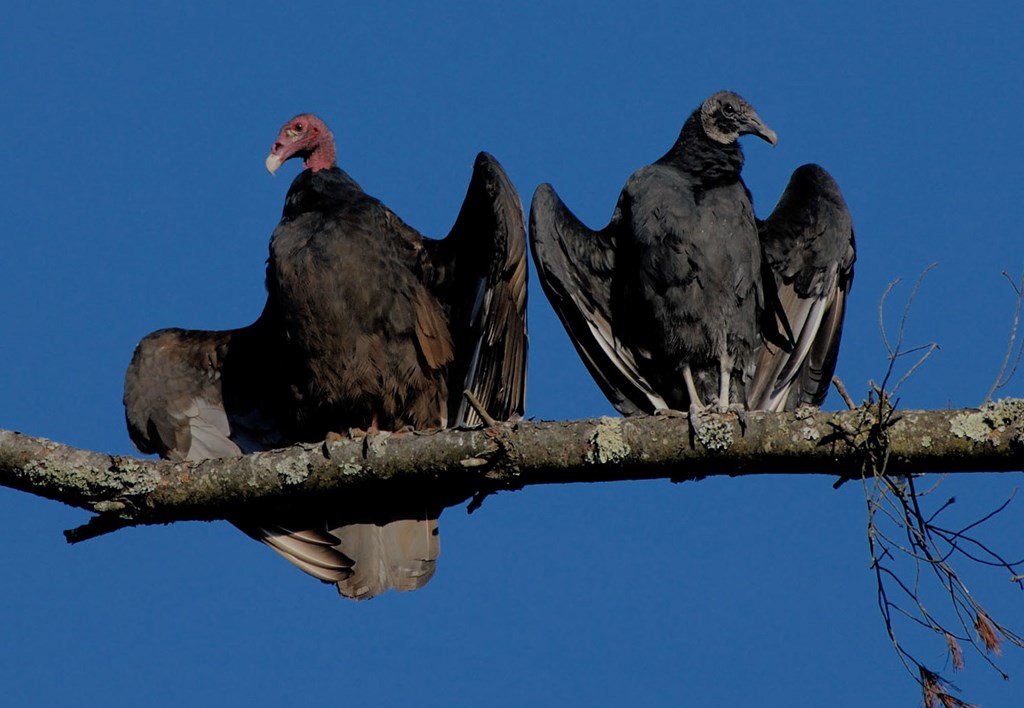Monitoring New World Vultures
Interactive Tracking Maps Tagged Vulture Sighting Report Form More about Wing Tagging
Donate to Local-to-Global Vulture Research Adopt a Vulture

Hawk Mountain's aims to monitor New World vultures, so we can detect potential declines and threats earlier on. Our work is helping us to understand more about these species and their seasonal movements, and at the same time provide the conservation community with an early warning system to avert similar problems.
Why study scavengers?
Scavenging birds eat dead and dying animals they are particularly prone to endangerment. The carcasses they feed on may have pesticides, toxins such as lead shot and drugs. As a result vultures are twice as likely to be globally threatened as are raptors in general.
Except for the California Condor, the most endangered vultures occur in the Old World. In southern Asia three previously abundant species of vultures (the White-rumped Vulture, Indian Vulture, and Slender-billed Vulture) have undergone catastrophic declines of more than 99% during the past 25 years because of the widespread use of a veterinary drug that is toxic to vultures that feed on the carcasses of treated livestock.
In Africa five species of vultures (the hooded vulture, white-backed vulture, Ruppell’s vulture, white-headed vulture, and lappet-faced vulture) are now seriously threatened as well, largely due to both accidental and purposeful poisoning.
Goals of the Study:
- Routinely monitor seasonal populations of New World vultures in North, Central, and South America
- Prevent catastrophic population declines by sharing information learned with conservation partners
- Use Black and Turkey Vultures as environmental sentinels of ecological change and environmental contamination, including climate change and heavy-metal contamination
- Provide the general public, including school children, with the ability to track the daily movements of these important scavengers across North and South America.
How can you help?
Have you spotted a vulture with a wing tag? Visit the link below and submit your sighting with as much information as you can provide.
We always appreciate donations to help our efforts. To help support this important research, please contact Senior Research Biologist David Barber (570-943-3411 x105, [email protected]) or donate today using the button below. Be sure to include in the comments of the form that the online gift is for new world vulture research.
Thank you for your unending support and help in our conservation efforts!